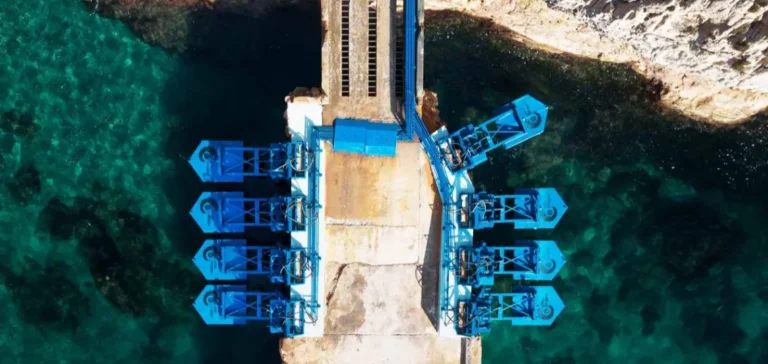Swedish-Israeli wave energy company Eco Wave Power Global AB has launched an automated drone-based maintenance solution in collaboration with Israeli firm BladeRanger Ltd., a robotics company specialised in solar panel cleaning. A live demonstration was held at the Jaffa Port site in Israel, where drones cleaned and inspected the floaters used to capture wave energy.
Towards reduced maintenance costs
According to the company’s data, operational expenses at the Jaffa Port and Gibraltar projects can reach up to 4% of initial capital expenditure (CAPEX) annually. Integrating autonomous drones could significantly reduce these costs by limiting the need for manual intervention while ensuring more consistent equipment upkeep. The system also aims to maximise equipment availability and boost energy output.
BladeRanger, whose technologies are already used by operators such as Nofar Energy in the photovoltaic sector, is now expanding its scope to include wave energy. Predictive drone maintenance may provide a competitive edge to this still-emerging energy source compared to other renewables.
A strategic partnership in progress
The collaboration may evolve into a long-term agreement, contingent on BladeRanger developing a maintenance solution fully adapted to Eco Wave Power’s system requirements. This partnership is expected to extend to the recently inaugurated Los Angeles pilot project and potentially to other sites in the company’s pipeline.
Inna Braverman, Founder and Chief Executive Officer of Eco Wave Power, stated that the innovation fits within the company’s strategy to “make systems more efficient and suitable for global expansion.” BladeRanger Chairman Hagai Climor noted that the partnership offers the company an opportunity to apply its technology in the marine energy sector.






















